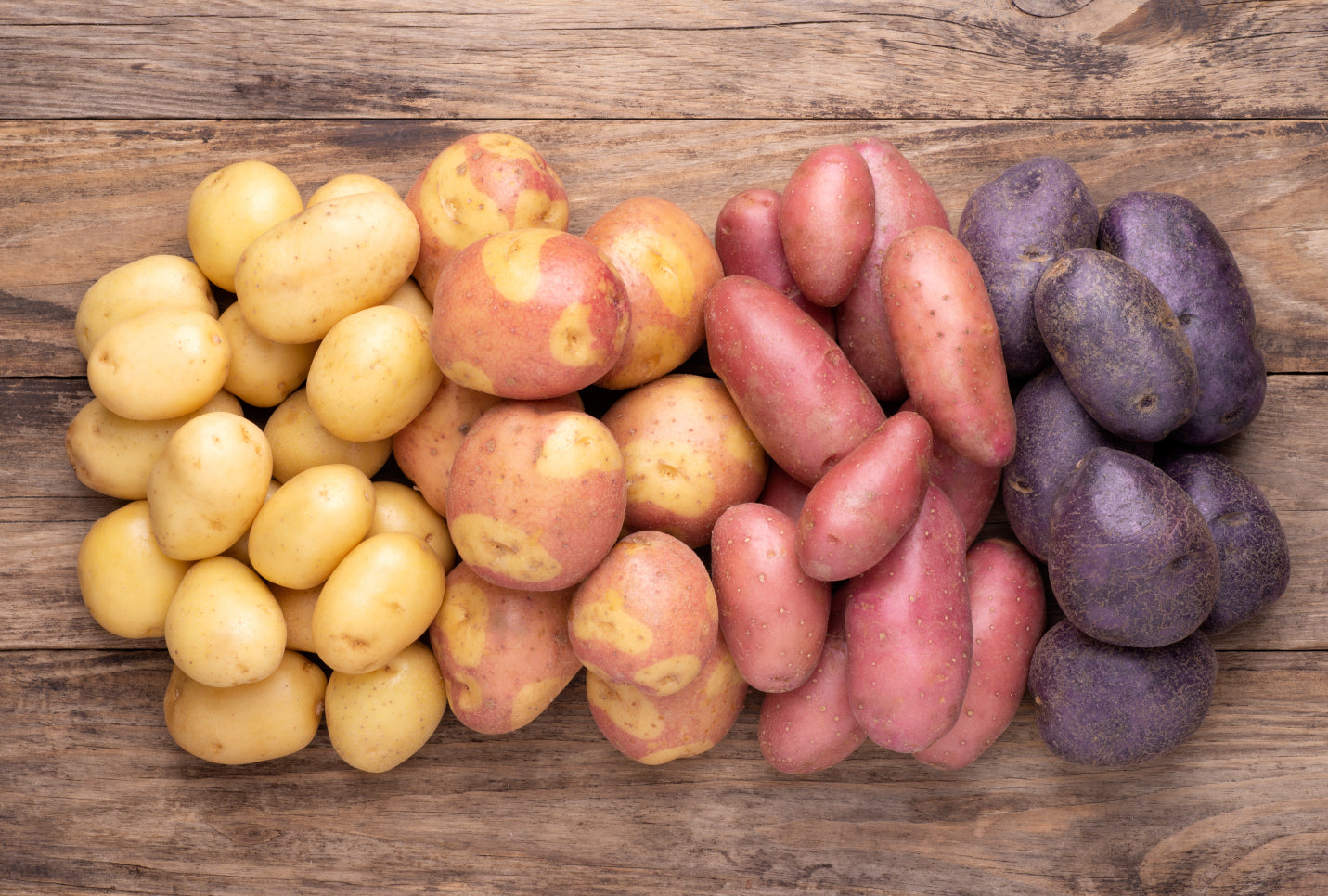
Does Sugar Cause Bloating? What To Know
Bloating is that pesky feeling we've all encountered at some point in our lives. But have you ever wondered about the connection between sugar and bloating? Don't worry — you're not alone in your curiosity!
In this article, we're going to dive into the intricate relationship between sugar and bloating, unravel the different types of sugars found in our food, and shed some light on the world of sugar alcohols.
What Are the Different Types of Sugar Found in Foods?
When it comes to understanding those tummy troubles, sugar quickly emerges as a potential culprit. Consuming excessive amounts of sugar, especially added sugars, can lead to bloating and other digestive woes.
So, let's explore how our bodies digest and process sugar to get a better grasp of the situation.
Natural Sugar vs. Added Sugar
To truly grasp the impact of sugar on bloating, we need to distinguish between natural sugars and added sugars.
Natural sugars, as the name suggests, occur naturally in foods like fruits and dairy products. These sources of natural sugar also come packed with essential nutrients that contribute to our overall well-being.
On the flip side, added sugars refer to the sweeteners and syrups that manufacturers incorporate into processed foods. You know, the sneaky ones that can hide in various treats and beverages.
One notorious example is high-fructose corn syrup, which pops up in many processed goodies. Consuming excessive amounts of added sugar can throw off the balance in our digestive system and lead to bloating.
What Are Sugar Alcohols?
Now, let's talk about sugar alcohols.
These sweeteners often show up in sugar-free products as an alternative to regular sugar. You'll find names like sorbitol, xylitol, and mannitol in candies, chewing gum, and certain low-calorie treats.
While sugar alcohols provide sweetness without as many calories as regular sugar, they can cause gastrointestinal distress when consumed in large quantities. The problem is our bodies struggle to digest sugar alcohols effectively when we consume them in excess.
Are Carbohydrates Sugar?
Let's chat about carbohydrates for a moment.
Carbs are a macronutrient that includes sugar, fiber, and starch. While all carbs get broken down into sugar during digestion, they don't all affect our bodies the same way. Complex carbohydrates found in whole grains, fruits, and vegetables offer essential nutrients, fiber, and a steady source of energy.
However, it's important to note that some people may experience bloating or other digestive issues after consuming certain carbohydrates, especially those with underlying conditions like lactose intolerance, gluten sensitivity, celiac disease, or irritable bowel syndrome (IBS).
These conditions can make processing certain carbs more challenging, resulting in undesirable symptoms.
These can include:
- Bloating
- Stomach pain
- Heartburn
- Belching
- Flatulence
- Cramping
Why Does Eating Sugar Cause Bloating?
As we learned in the section above, it’s clear that sugar is one of the main causes of bloating for many people. But have you ever wondered why? Well, let's dive into the nitty-gritty details and uncover the mystery.
How Does Sugar Interact with the Digestive System?
To understand the potential connection between sugar and bloating, we need to take a closer look at how sugar is processed in our digestive tract.
When we consume sugar, it embarks on a journey starting in the small intestine, where it gets broken down into simpler forms for absorption. These absorbed sugars then enter our bloodstream, providing much-needed energy to our cells. However, if we go overboard with our sugar intake, it can overwhelm our digestive system and lead to potential issues.
In some cases, when we consume an excessive amount of sugar, it can remain undigested in the small intestine, make its way down to the large intestine, and start to build up as it sits there. Here, the resident bacteria in our gut will start to feast on this undigested sugar unless you do something about it.
As these bacteria ferment the sugar, gas is produced as a byproduct. And voila! We end up with bloating and discomfort. So, it's easy to see how excessive sugar consumption can directly contribute to bloating through this mechanism.
What Role Does Gut Bacteria Play in Digesting Sugar?
Our gut is like a bustling city, populated by trillions of bacteria known as gut microbiota. These little guys play a vital role in many aspects of our health, including digestion.
When it comes to sugar, certain types of gut bacteria have the superpower to break down sugars that our own digestive enzymes struggle with.
However, it's important to note that the composition of our gut bacteria is unique to each individual. Some people may have a higher population of bacteria that produce more gas. This can make them more prone to bloating when they consume sugar.
Additionally, imbalances in the gut microbiota, such as an overgrowth of certain bacteria, can worsen bloating symptoms. By maintaining a healthy and diverse gut microbiota through a balanced diet, lifestyle, and the occasional cleanse, we can encourage optimal digestion and minimize bloating.
Do Certain Sugars Cause More Bloating Than Others?
When it comes to sugars, they're not all created equal in terms of their bloating potential. Some individuals may experience bloating more frequently with specific sugars, especially if they have certain sensitivities or underlying conditions.
Lactose, the sugar found in milk and dairy products, can cause bloating in individuals with lactose intolerance. Meanwhile,fructose, found in fruits and certain sweeteners, may also contribute to bloating in some individuals.
Let's not forget about those sneaky sugar alcohols we talked about earlier! Sorbitol, xylitol, and mannitol, commonly found in sugar-free products and chewing gum, can also pack a bloating punch.
What Else Can Cause Bloating?
Apart from sugar, there are a few other factors that can contribute to bloating.
Specific Foods
Some foods are known to be more gas-producing and can lead to bloating, especially in susceptible individuals. Brussels sprouts, lentils, legumes, and certain dairy products, including the beloved ice cream, fall into this category.
These foods can cause bloating due to their high fiber or lactose content. When the undigested components of these foods reach the large intestine, they become a feast for our gut bacteria, resulting in gas production and leaving us feeling extra gassy.
FODMAPs
FODMAPs (fermentable oligosaccharides, disaccharides, monosaccharides, and polyols) are a group of carbohydrates that some people find difficult to digest. Foods containing fructans and raffinose, such as wheat, onions, garlic, and beans, fall into the FODMAP category.
For individuals with irritable bowel syndrome (IBS), FODMAPs can trigger bloating and other digestive symptoms. As such, many nutritionists recommend a low-FODMAP diet for individuals with IBS.
Other Causes
Bloating can also be caused by non-dietary factors. For example, constipation can very often lead to a feeling of fullness and bloating.
Carbonated beverages can also introduce excessive air into the digestive system and sometimes result in digestive problems. In fact, just swallowing an excess of air while eating or drinking can be enough to cause excess gas in the digestive system and contribute to bloating.
How Can I Soothe Bloating?
Dealing with bloating can be uncomfortable, but there are steps you can take to find relief and support a healthier gut. In this section, we'll explore some strategies that may help alleviate bloating and promote digestive well-being.
How Can Probiotics Support a Healthy Gut?
Probiotics have gained considerable attention for their potential health benefits, especially when it comes to supporting gut health.
These live bacteria, when consumed in sufficient amounts, can provide various advantages for your digestive system. Probiotics work by replenishing and balancing the beneficial bacteria in your gut microbiota, which is essential for optimal digestion.
Probiotics aid in breaking down and fermenting certain carbohydrates, reducing the likelihood of gas production and bloating. They also support the integrity of the intestinal lining, maintaining a healthy barrier against harmful substances and promoting efficient nutrient absorption.
To incorporate probiotics into your routine, consider adding fermented foods like yogurt, kefir, sauerkraut, and kimchi to your diet. Alternatively, you can choose high-quality probiotic supplements that provide a diverse range of beneficial bacteria strains.
What Dietary Changes Can Help With Bloating?
Diet plays a significant role in managing bloating. Making a few dietary tweaks can go a long way in reducing those uncomfortable puffy feelings. Here are a few tips to consider:
- Limit or avoid high-sugar and sugary foods. We all love our sweet treats and sugary drinks, but they can be a major culprit behind excess gas and bloating.
- Be mindful of sugar substitutes. While artificial sweeteners can be a low-calorie option, some of them can actually contribute to bloating.
- Choose digestive-friendly foods. Fill up your plate with fiber-rich fruits and veggies, whole grains, and legumes in moderation.
- Stay hydrated. Proper hydration is key for healthy digestion and preventing constipation, which can lead to bloating.
When Should You Consult a Dietitian About Your Digestive Issues?
While these tips can work wonders, remember that we're all unique when it comes to our digestive systems.
If you're frequently dealing with persistent or severe bloating, it might be wise to consult a dietitian or nutritionist. These experts in gastroenterology specialize in digestive health and can provide tailored advice just for you.
If needed, a gastroenterologist can perform further diagnostic tests and provide medical interventions.
The Bottom Line
Congrats on making it to the end of our bloating and digestive wellness journey! Armed with knowledge about sugar, gut bacteria, dietary changes, and when to seek professional help, you're ready to make positive changes in your life.
As you continue your quest for a happy gut and a bloating-free existence, we want to introduce you to Dr. Kellyann's Bone Broth. Packed with nutrients, collagen, and gut-soothing properties, it has been a trusted companion for many on their path to digestive harmony.
Our bone broth is specially crafted to support your overall well-being and digestive health. With its nourishing qualities and natural ingredients, it's a fantastic addition to your diet. So why not take a leap towards a life free from bloating by embracing the power of bone broth?
Remember, achieving digestive wellness is a unique journey for each of us. Stay curious, listen to your body, and don't hesitate to seek out additional resources and consult healthcare professionals for personalized guidance. Your digestive health matters, and we're here cheering you on every step of the way.
Sources:
Natural and Added Sugars: Two Sides of the Same Coin | Harvard University
The Effects of High Fructose Syrup | NCBI Bookshelf
What You Should Know About Sugar Alcohols | Cleveland Clinic
Carbohydrates | The Nutrition Source | Harvard T.H. Chan School of Public Health
Digestion, Absorption and Transport of Carbohydrates | Sugar Nutrition Resource
Introduction To the Human Gut Microbiota | PMC
Lactose Intolerance | Johns Hopkins Medicine
Is Fructose Malabsorption a Cause of Irritable Bowel Syndrome? | PMC
Eating, Diet, & Nutrition for Gas in the Digestive Tract | NIDDK







